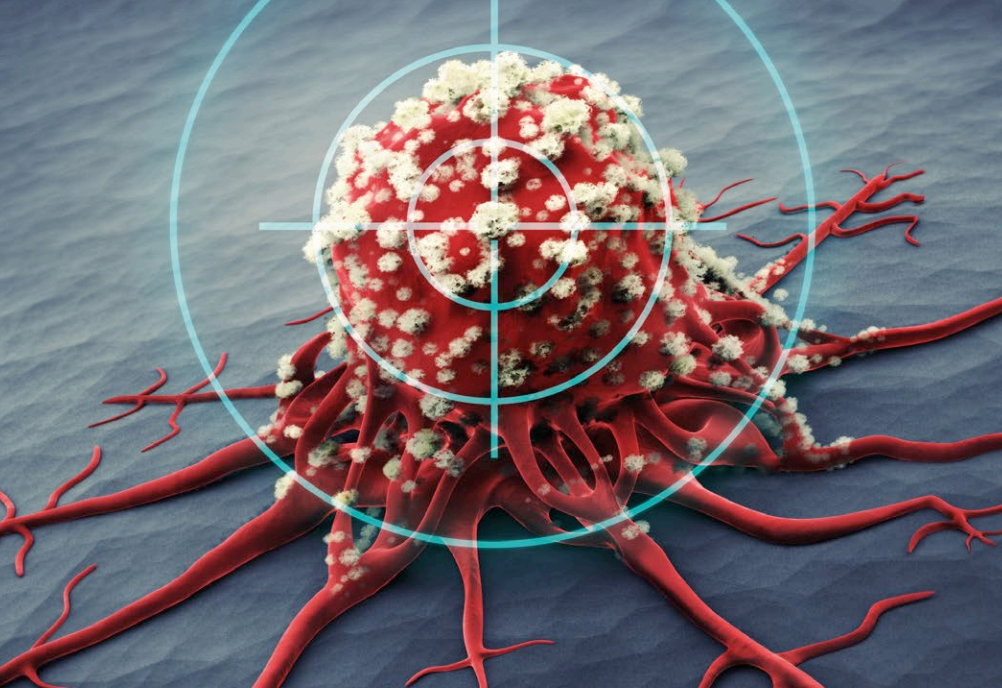Share this Page:
Researchers are looking for better ways to diagnose kidney cancer. Currently, diagnosis is made using scans, which cannot tell the difference between benign and cancerous tumours, and biopsy, which involves surgery and is not always accurate. There is, therefore, an unmet need for an accurate test to diagnose kidney cancer to guide patient care and treatment.
68Ga-DPI-4452 (Debio 0328) is an imaging agent that attaches to an enzyme called carbonic anhydrase IX (CAIX, pronounced CA9). This enzyme is found in clear cell kidney cancer tumours. 68Ga-DPI-4452 (Debio 0328) is a product made from combining a weakly radioactive molecule called gallium 68 (68Ga) with the imaging agent Debio 0328. When given to humans, 68Ga-DPI-4452 (Debio 0328) binds to carbonic anhydrase IX in kidney cancer tumours and can help to tell the difference between kidney cancer, normal tissue, and other tumours on PET scans.
Results from a recent first-in-human study published in The Journal of Nuclear Medicine show that 68Ga-DPI-4452 (Debio 0328) can rapidly and accurately show tumours in patients with clear cell renal cell cancer. The results of the study suggest that 68Ga-DPI-4452 (Debio 0328) is better than standard CT scans for kidney cancer. It is also much faster.
The study is ongoing, and included three patients with metastatic clear cell renal cell carcinoma that could not be removed with surgery. These patients had already been treated with at least two different anti-cancer medications. The patients were given 68Ga-DPI-4452 (Debio 0328) and then had a whole-body PET/CT scan at 15 minutes, and one, two, and four hours after administration. Images from these three initial patients were analysed, and how the imaging agent moved around the body and side effects were assessed.
68Ga-DPI-4452 (Debio 0328) gave outstanding scan results from the earliest time point with sustained uptake of the imaging agent by the tumour for up to four hours after administration. The imaging agent was rapidly eliminated from the blood and urine, and no clinically significant side effects were reported by the patients.
The researchers concluded that further work is now needed to assess whether this new imaging test could improve patient diagnosis, management, and outcomes. These findings are also encouraging for the evaluation of 177Lu-DPI-4452 (Debio 0228) as a treatment for clear cell renal cell carcinoma, which will be looked at in the second part of the study.













